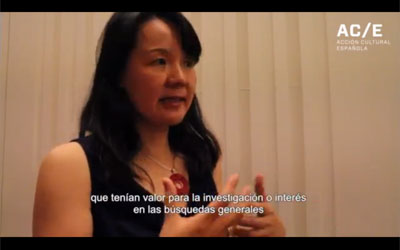This year’s symposium is entitled Documentary Heritage on Internet and has a dual purpose:
-To provide an international overview of the situation of web archives, collections which hold and disseminate resources published on the internet so that they may be used as tools for knowledge and research by present and future generations
-To address aspects related to Electronic Legal Deposit – already in force in a few countries like France and the United Kingdom – which are about to become a reality in our country with the forthcoming enactment of the Royal Decree regulating them. Web archives have become the building blocks for e-legal deposit.
The internationally renowned professionals who will attend the event include representatives of international organisations like the Internet Archive – a pioneering institution in this field which has been crawling the web since 1996 – and the International Internet Preservation Consortium (IIPC), an organisation which brings together the most important web archiving heritage institutions, of which the Biblioteca Nacional de España (BNE) has been a member since 2009. Representing the field of libraries, there will be speakers from the web archives of the British Library and the Bibliotèque nationale de France, as well as from the Basque and Catalan libraries, which have pioneered web archiving in Spain. The national team of speakers also includes representatives from Telefónica and Red.es, a public corporation with which the BNE has recently signed an agreement for the construction of a shared repository which will house the Electronic Legal Deposit. In June, the BNE is undertaking the eighth mass crawl of the .es domain, in collaboration with the Internet Archive. In 2009, the Library launched the system for preserving Spanish digital contents hosted under the .es domain. Since then, there have been seven mass crawls of this domain, following the trend established by other national libraries of first guaranteeing the protection of their respective domains, and two selective crawls, one on the General Elections held on 20 November 2011, and the other to compile outstanding Spanish resources in the sphere of humanities.
This eighth crawl will be the first to have a list of over one million seven hundred thousand internet domain names under the .es country code.
The symposium is aimed at library, archive and documentation professionals, researchers and representatives from the publishing and universities sector and anyone wishing to learn more about this subject.
Attendees must enrol by 28 June, by sending an e-mail with their details to infocooperacion@bne.es.
A certificate of attendance will be issued, provided participants have enrolled prior to the date of the symposium.



